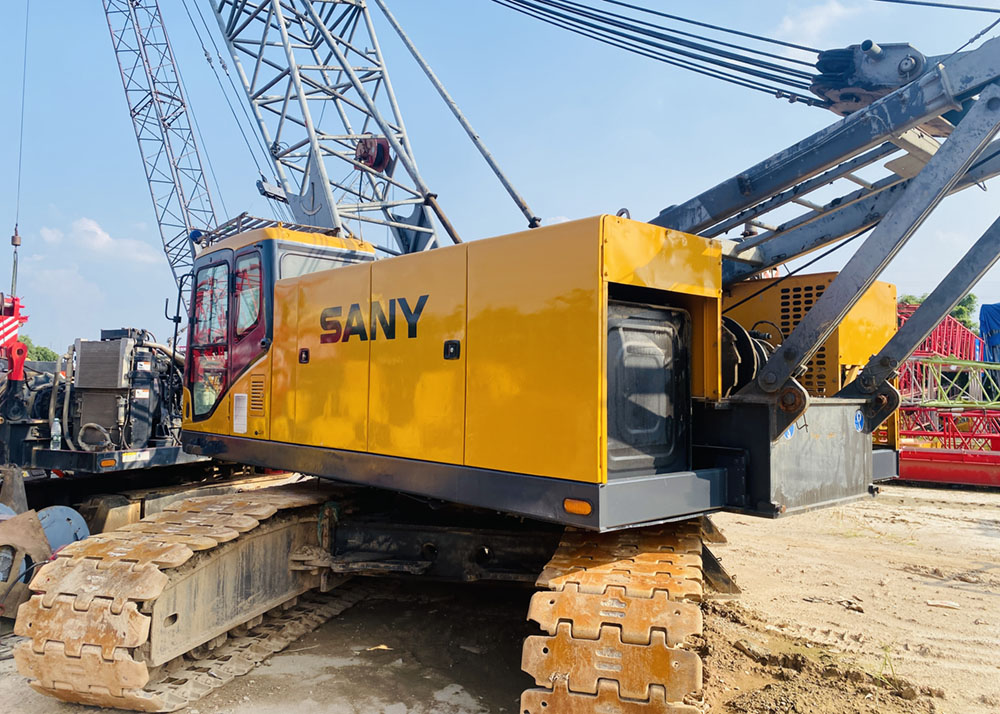A crane is a powerful assembly of a hoist rope, boom, jib, counterweights, and gears. It is an indispensable piece of machinery on construction sites, facilitating the lifting and transportation of heavy objects. Cranes not only enhance productivity but also save time and money. In this article, we will explore two common types of cranes used in the manufacturing and construction sector: the Lattice Boom Crane and the Telescopic Boom Crane.
The Lattice Boom Crane
The lattice boom crane is a type of mobile crane that is mounted on crawler tracks, enabling it to traverse various distances on job sites. What sets this crane apart is its boom, which consists of a fixed-length lattice structure that can be adjusted to different lengths by adding or removing sections. In some cases, lattice crane booms can reach staggering lengths of up to 300 feet.
One of the primary advantages of the lattice boom crane is its exceptional structural strength. This robust design allows for a significant extension of the boom’s length, providing greater reach and versatility. Moreover, the option to add jibs at offset angles further enhances its lifting capabilities. The lattice boom crane is the preferred choice when the project demands heavy lifting at an extended reach.
The Telescopic Boom Crane

The telescopic boom crane is another commonly used mobile crane in construction. These cranes are equipped with hydraulic-powered booms that can extend in and out. While they may have a lower lifting capacity compared to their lattice boom counterparts, telescopic cranes offer increased portability and versatility.
One of the key advantages of telescopic boom cranes is their portability. These cranes are typically mounted on wheels, allowing them to be driven from one construction site to another with ease. This mobility is a significant advantage when projects require frequent relocation of the crane.
Choosing Between Lattice Boom and Telescopic Boom Cranes
When deciding between a lattice boom crane and a telescopic boom crane, several factors should be considered:
1. Lifting Capacity
If your project demands heavy lifting over extended distances, a lattice boom crane is the preferred choice due to its higher lifting capacity.
2. Portability
If you anticipate the need to move the crane frequently between sites, a telescopic boom crane’s mobility makes it a more suitable option.
3. Space Constraints
Consider the available space on your job site. Lattice boom cranes require more space for setup and operation, while telescopic cranes are more compact.
4. Project Duration
For long-term projects that require consistent heavy lifting, a lattice boom crane might be the better investment. Shorter-term projects may benefit from the flexibility of a telescopic crane.
In the world of construction and manufacturing, the choice between a lattice boom crane and a telescopic boom crane depends on the specific requirements of the project. Both types of cranes have their unique strengths, and understanding their differences is crucial to making the right decision. Whether you prioritize heavy lifting capacity, portability, or versatility, choosing the appropriate crane will contribute to the success of your project.
Post time: Oct-18-2023






